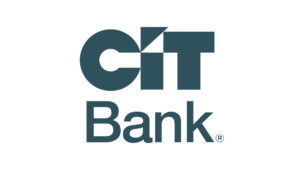Reading time: 13 minutes
This post may contain affiliate links. If you click these links and purchase something we may earn a commission. This helps us provide the information here free of charge to you. Continue Reading.

New Year isn’t just another day. It’s a great time to sets out new goals. If you want to experience a drastic improvement in your financial life, then consider making financial New Year’s resolutions.
It is not enough to simply desire a change in your finances; you have to work towards it.
There are bad financial habits that you must ditch. And then there are good ones you must cultivate. You have to be resolute about it, hence, financial New Year’s resolutions.
In this article, we are going to help you with the top thirteen financial New Year’s resolutions you must make.
And that’s not all; at the end of this article, we are also going to show you where you can get professional financial tools to help you achieve your goals.
13 New Year’s Resolution to Improve Your Finances
1. Start a Budget and Track Your Expenses
Start a budget if you don’t yet have one. Creating and sticking to one can be one of the best decisions you can make in your financial New Year’s resolutions. A budget lets you take a closer look at the money you earn, the money you spend, and the money you owe.
Starting a budget can be extremely difficult if you haven’t done one before. But the truth is, you don’t have to create one yourself. You can simply get one from our online store. I’ll recommend a Budget Planner that I use, and it has allowed me to experienced tremendous improvement in my finances as a result.
Once you become accustomed to following the Budget Planner, you will find money freeing up for you to use for investment.
Use my link below to get this Budget Planner at a 50% discount
Financial Planner, Financial Planner @ 50% Discount
2. Build Your Emergency Fund
In the event of an emergency, you don’t want to be left without emergency funds. It can save lives when unexpected problems like accidents, job loss, or a global pandemic happen. If you don’t have an emergency fund at the beginning of the new year, it’s time to add one to your financial New year’s resolutions!
First, calculate your monthly expenses to determine how much money you need for a reserve fund. This should include not only rent or mortgage but also utilities and basic expenses.
While many financial experts agree that this should be at least three to six months’ worth of your spending, it’s not bad to reassess how much money you’ll need in an emergency.
3. Pay Off Your Credit Card Debt

If credit card debt is hindering your financial success, then why not make it part of our financial new year’s resolutions to pay it off?
Paying off your credit card debt is an important step towards your financial well-being. Failure to repay can negatively affect your credit score.
When looking for a way to pay off your debt, a good option is to open a balance transfer credit card. On one hand, it may seem counterproductive, but this card can help consolidate your debt and prevent it from taking interest for a while. That’s a great incentive, don’t you think?
There are other approaches you can take to pay off your Credit Card Debt. The two most common strategies are paying off the largest debt first (debt avalanche method) and paying off the smallest debt first (debt snowball method). If you’re having trouble paying, consider credit counseling, a low-interest balance transfer, debt settlement, or a personal loan.
4. Pay off Your Student Loan
Student loans are one of the largest household debts in the country, and you know how painful it can be if you have them. Wouldn’t it be great if you could completely pay off your student debt? Well, depending on how much you have, 2022 could be the year you make it possible! So, make this a priority in your financial New Year’s resolutions.
A student loan repayment plan needs to be organized. Knowing who you owe to, how much you owe, and how you can pay off your loan should be your top priority.
If you’re having trouble meeting your student loan repayments on your budget, it’s worth calling your lender. Often, an income-based repayment or deferral plan can be developed that can reduce the financial impact of repaying current loans.
5. Start Investing
If you weren’t investing before, it’s about time you start investing. Investing remains one of the most traditional ways to build up wealth. While investing can earn you a fortune, it also has the possibility of making you broke. This is why it is good to take out time to study and understand the investment.
However, you can choose the easy route and get an advisor to guide you on what to invest in, and also, when to buy and sell.
6. Improve Your Credit Score
A good credit score depends on the grading system. For example, VantageScore considers a good score to be 661-781 while FICO is 670-739.
Your credit score can determine the interest you pay on a loan and in some states, your credit score is a determining factor in car insurance premiums. This is why improving your credit score has to be one of the top priorities on your financial New Year’s resolutions.
Consumers can get free credit inquiries every year from the three major credit companies as guaranteed by the Fair Credit Reporting Act. Some credit card issuers and other lenders allow customers to check their credit scores for free.
You can also purchase your score from any of the 3 credit bureaus.
Four Tactics to Improve your credit score:
- Pay all bills on time and in full.
- Reduce your credit utilization.
- Engage in a score- boosting programs. An example is Experian Boost.
- Avoid applying for new accounts regularly.
7. Spend Less Money
Doesn’t anyone want to save money? One of the best ways to do this is to consciously spend less money. It is easier said than done, but with just a few small changes to your spending habits, you can spend less in 2022.
To start spending less money, we recommend: Take a closer look at your budget and find out which categories of expenses you can reduce. Reducing or eliminating the categories of spending related to coffee, travel, and dining can save you a significant amount of money each month. Among other ways to save money, my favorites are:
- Finding Better Cell Phone Deals: Cellular service can be expensive. If you haven’t considered others lately, give it a try. Many mobile service companies will work hard to outperform their competitors and will often exceed their current speeds!
- Begin To Clip Coupons: Clipping coupons are an easy way to save money at the grocery store and elsewhere. Coupons commonly found in local guides and newspapers can save you a lot of money.
- Create A Shopping List: A grocery list can help you financially amid temptation by not overspending on snacks and unnecessary ingredients.
- Make Coffee At Home: Money spent on Coffee builds up quickly, but it’s hard to survive a workweek without it. Instead of rushing to the coffee shop, make your coffee at home and take it to your office in an insulated thermos.
- Bring lunch to work: Eating out every day is likely to put your finances under pressure. Why not give them a breather and wrap up yesterday’s leftovers instead?
- Dating at home: A date night can be an important part of maintaining a connection with your partner, and it shouldn’t be sacrificed. Finding alternative dating ideas, such as cooking dinner together at home, can help you save money.
- Try Food Delivery Service: The food delivery service delivers pre-cooked ingredients and simple recipes right to your doorstep.
- Reduce The Number Of Subscriptions: We live in a world overflowing with subscription services. It’s easy to subscribe to many of them and end up not using them.
8. Track Your Expenses
Knowing how much we spend each month helps us not only create a more accurate budget but also plan for the future. Tracking your expenses allows you to look back in time as you create a budget, including utility bills that may change with the seasons.
Tracking your expenses is one decision that you must implement in your financial New Year’s resolutions.
9. Automate Your Savings
One of the easiest ways to accumulate savings is to automate your contributions. This way, you don’t have to think about how much money to save each month.
Many employers allow employees to divide their salaries and put different amounts into different accounts. Another possibility is to set up automatic transfers between your bank accounts.
10. Get Your Taxes Done Early
The tax season is fast approaching, but you don’t have to worry. Paying your taxes early in the year will put your mind at ease and reduce the hassle of traveling out of your house. You may even get your return sooner than when you’re close to the deadline!
11. Open a Retirement Account
When you’re young, saving money for retirement sounds like perhaps the least exciting thing you can do. The fact is, the earlier you start, the safer you are when retirement approaches. Investing in your retirement is also equivalent to investing in your future.
If you are employed, a short conversation with your manager or department of human resources will tell you if your employer offers retirement accounts such as 403(b) or 401(k). Often the employer who has it will match a percentage of your annual fee. This match is like a bonus from your employer that you cannot receive until you retire.
If your employer doesn’t offer a retirement account or you are self-employed, you still have the option of saving for retirement. You can do this by opening an individual retirement account (IRA).
12. Writing a Will
Do not think of wills as only for the elderly. If you don’t have a will yet, make it one of your financial New Year’s resolutions. It will help you and your family. Without it, if you die, the laws of your state will determine who will be the owner of your property and assets.
If you’re wondering if you need a will, the answer is an absolute yes! Most importantly, wills are highly recommended for people who have children, have a spouse, or have a positive net worth.
Having a will protects your family and property, and we all agree that a will is important. Don’t procrastinate if you don’t have one yet! This should be a top priority on your list of financial New Year’s resolutions
13. Prepare for the unexpected
Risk is a part of life, especially in investing and finance. Unexpected events of all kinds, such as illness, unemployment, disability, death, natural disaster, or lawsuits, can turn your financial life upside down. One major decision you can make on your financial New Year’s resolutions is insurance.
Consider investing in insurance if you are unable to cover major risks on your own.
Insurance helps protect against unexpected but costly events when they do happen. The following tips will help you prepare for life’s unexpected moments.
A. Get Health Insurance To Protect Yourself From Huge Medical Bills: Choose the health insurance policy that fits your needs in areas such as coverage, medical provider, deductibles, and co-payments. If you are in good health and rarely see a doctor, consider a high deductible policy to insure the possibility of unexpected medical-related problems.
B. Buy Life Insurance If You Have Dependents Or Other Obligations: First, take advantage of the group insurance policies offered by your employer. They generally do not require a medical examination and can be cost-effective in providing income replacement for dependents.
You may need additional life insurance if you have minor children or large debts that will continue after you die, and you cannot self-insure. If you do not need whole life insurance, or unless you have special circumstances, consider starting with a low-cost life insurance policy before purchasing life insurance.
C. Protect Your Income With Long-Term Disability Insurance: Your chances of becoming disabled are higher than your chances of dying young. According to the US Social Security Administration, 20-year-old Americans have a 19% chance of becoming disabled before retirement age and a 3% chance of dying before retirement age.
D. Protect Your Physical Assets With Property Accident Insurance: Check your homeowner or renter and auto insurance policy to make sure your coverage and deductibles are still right for you.
E. Get Additional Liability Coverage If Necessary: Personal liability insurance is an economical way to increase liability coverage by more than $1 million if someone is injured on your property or if an accident is your fault. ” Umbrella” insurance does not cover the business-related debt, so your business should be properly insured, especially if you have your risks and are engaged in a job that your employer doesn’t cover.
F. Consider The Pros And Cons Of Long-Term Insurance: If you are considering a long-term care policy, look for a policy that provides the right type of care and guarantees renewal at a fixed premium rate. Long-term care tends to be most cost-effective starting around age 50 and more expensive or harder to find after age 70. A smart retirement savings strategy is another way to plan for long-term care costs.
G. Make A Disaster Plan For Your Safety And Peace Of Mind: Check your landlord’s or tenant’s policies to find out what’s covered and what’s not. If applicable in your area, speak with an agent about flood or earthquake insurance.
In general, none of these are covered by most homeowners’ policies. Keep an updated video inventory of your valuable household items and possessions in a safe place away from home, along with professional and replacement cost estimates.
Consider storing supplies and important documents on a portable hard drive. It’s also a good idea to put copies of birth certificates, passports, wills, trust papers, home improvement records, and insurance policies in a small, secure evacuation box (lockable fire, waterproof box) that you can put in your home. Hurry if necessary. Evacuate immediately. Make sure your trusted loved ones also know about this file in case of an emergency.
Closing Remarks
As you embark on your Financial New Year’s resolutions, you must get professional financial tools to aid your cause.
Some of these include Financial Planner, Emergency Planners, Wheel of Life, and lots more.
Click on the link to learn more about them, and get yours.
Suzy Darlen Financial Tools Shop
Oh! And one more thing…HAPPY NEW YEAR!








